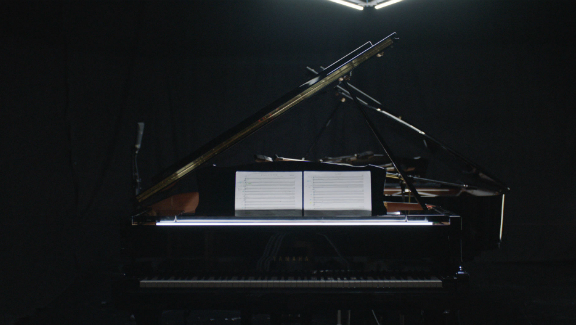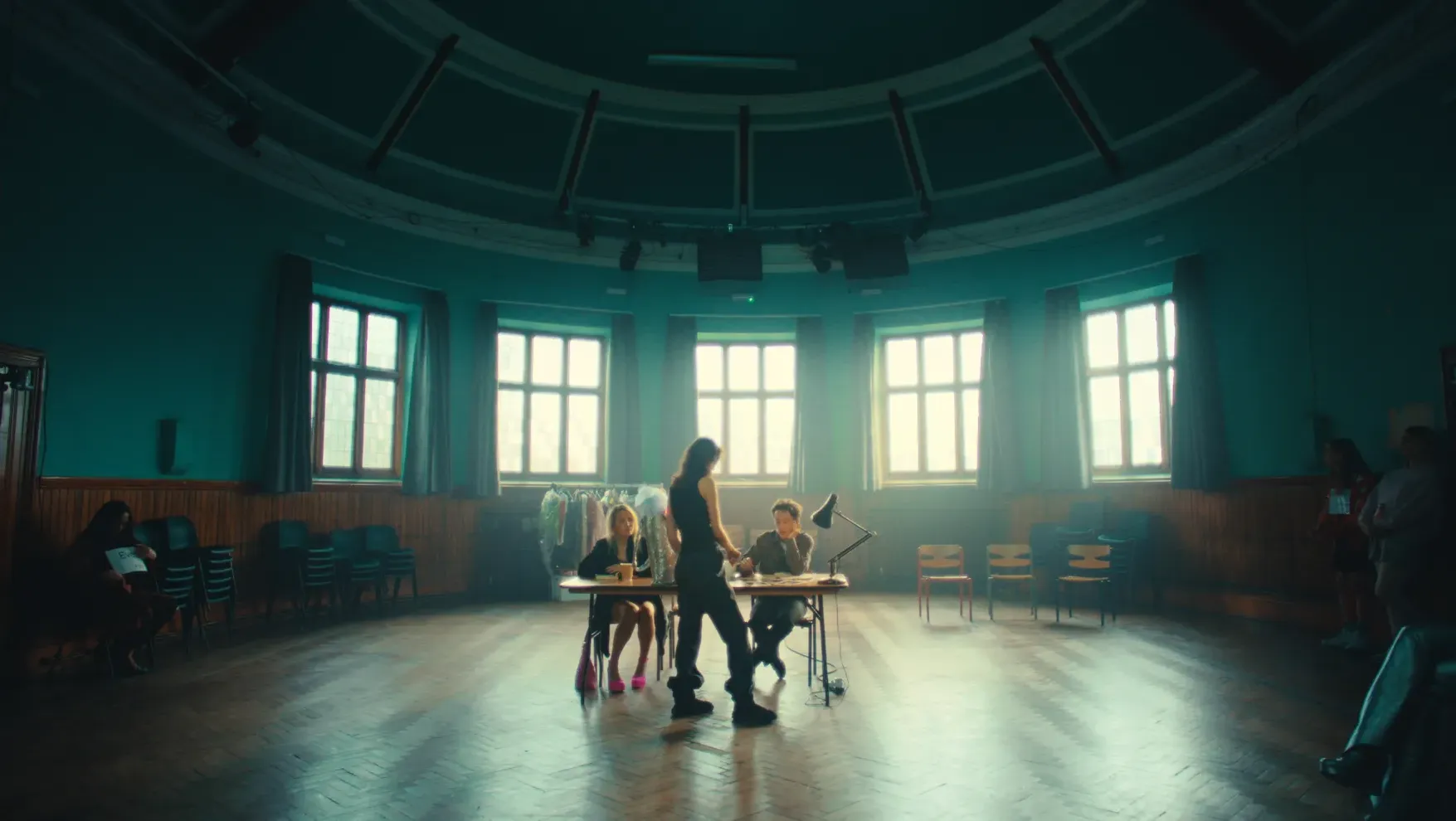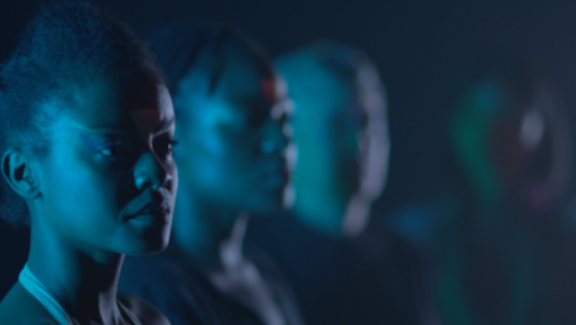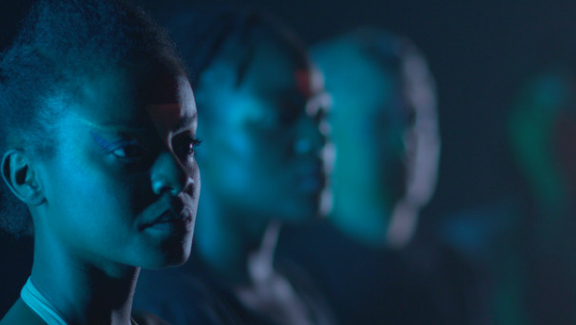Infinity minus Infinity
Synopsis
INFINITY MINUS INFINITY brings together dance, music, recital and digital animation to compose a transhistorical zone in which the unpayable debts of racial capitalism cannot be separated from the ongoing crimes of capitalogenic climate catastrophe. Infinity minus Infinity enacts the durational timelines of past distress, present duress and future dread through the assembly of a chorus of trans-temporal deities whose utterances, expressions, gestures and movements personify the compounded, accumulated, irreparable times and spaces of the hostile environment.
The phrase ‘hostile environment’ invokes the covert policy of targeting migrants enacted by the Conservative government since 2014. It stands for the criminalisation of the Afro-Caribbean women and men that migrated to Britain in the 1950s to help reconstruct its industrial infrastructure. The effort to detain and deport these women and men of the Windrush generation – so called because they followed in the wake of the men that emigrated to Britain from the Caribbean on board the SS Empire Windrush in 1948 – reveals the British state’s commitment to disarticulating the forms of attachment and belonging of Afro-Caribbean settlement that helped decolonize the British empire from within.
Infinity minus Infinity extends the policy of the ongoing hostile environment backward and forward in an inter-scalar movement between times and spaces that dramatises Saidiya V. Hartman’s formulation of the afterlife of slavery within a choreography of what Christina Sharpe calls anti-blackness as total climate. (RCA)
Official Selection Berlin International Film Festival 2020 - Forum Expanded - International premiere
Details
- Year
- 2020
- Type of project
- Shorts
- Running time
- 52 min
- Director
-
The Otolith Group
- Commissioned For
- Sharjah Architecture Triennial
Categories
Production Status
Production Company
UK, United Arab Emirates, Belgium co-production
Page updates
This page was last updated on 12th May 2025. Please let us know if we need to make any amendments or request edit access by clicking below.
See also
You may also be interested in other relevant projects in the database.
 The Third Part of the Third Measure
The Third Part of the Third Measure
Director: The Otolith Group
Year: 2018
'The Third Part of the Third Measure' creates an encounter with the militant minimalism of avant-garde composer, pianist and vocalist Julius Eastman. The two-channel video installation focuses on what The Otolith Group (Anjalika Sagar and Kodwo Eshun) describe as an “experience of watching in the key of listening”, invoking political feelings of defiance and the collective practice of movement building that participates in the global struggles against neoreactionary authoritarianism. Their work invites viewers to attend to exemplary ecstatic aesthetics of black radicalism that Eastman himself once described as “full of honor, integrity and boundless courage”. (Berlinale brochure) Official Selection Berlinale 2018 - Forum Expanded Exhibition - "A Mechanism Capable of Changing Itself" - Group exhibition at Akademie der Künste, Hanseatenweg
 Principal Boy
Principal Boy
Director: Maz Murray
Year: 2024
Following the audition, rehearsal, and performance of the central character in British pantomime, known as the ‘principal boy’. Traditionally a young male protagonist, the character is conventionally played by a woman in drag. Using and subverting traditional British pantomime conventions, PRINCIPAL BOY explores the presence and absence of trans and gender-nonconforming people in mainstream culture, including film and stage productions. Official Selection Aesthetica Film Festival 2024
 Is Folkestone the Birthplace of Television?
Is Folkestone the Birthplace of Television?
Director: Ben Barton
Year: 2026
Where did the first-ever TV broadcast take place? Beginning with a forgotten plaque in Folkestone, filmmaker Ben Barton follows a trail left by television pioneer John Logie Baird – and re-examines where television first sparked to life.

